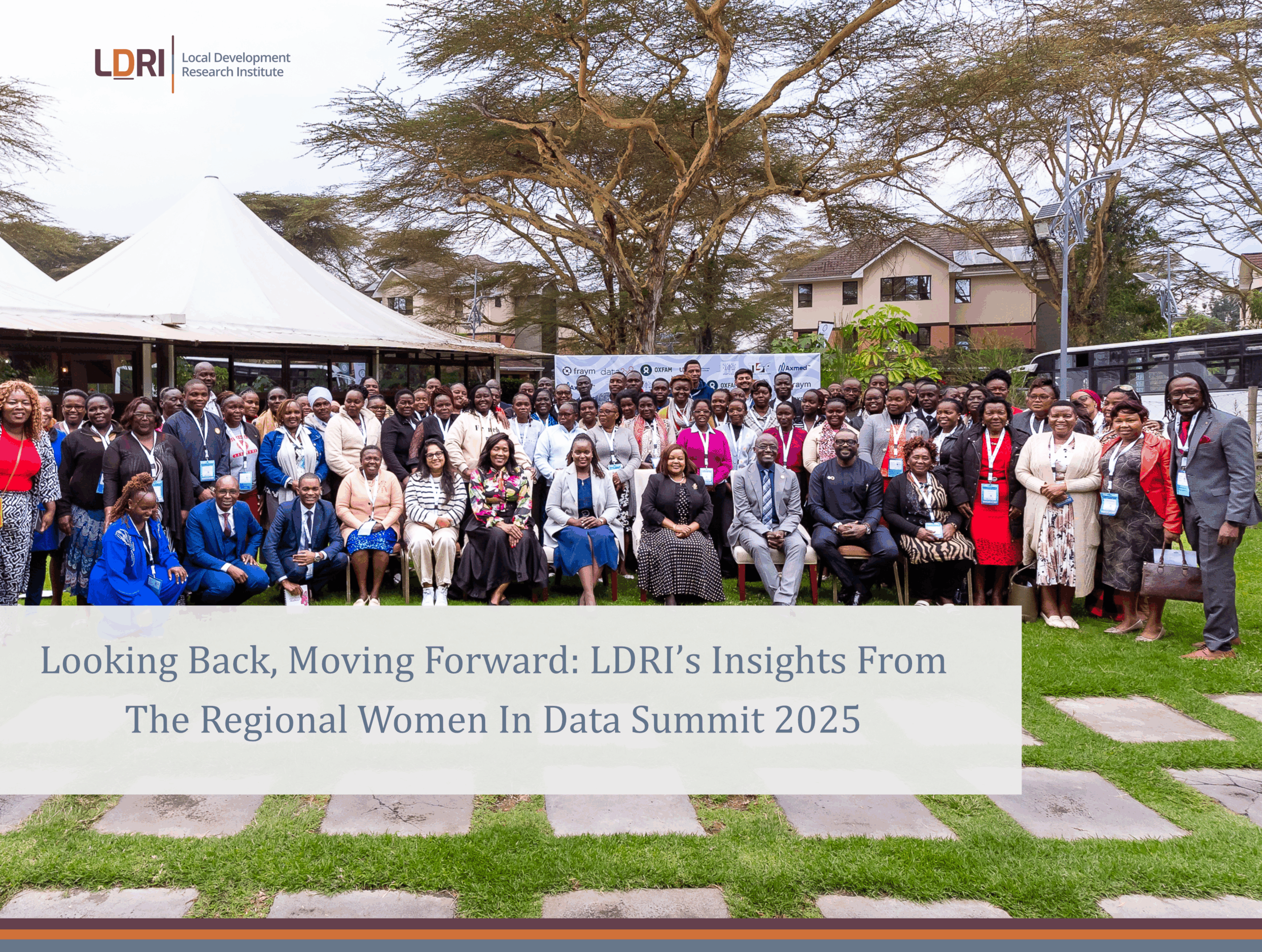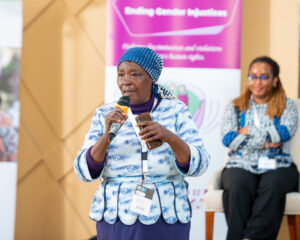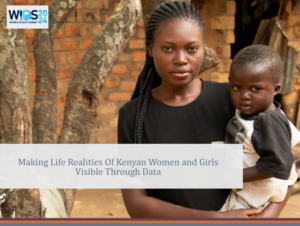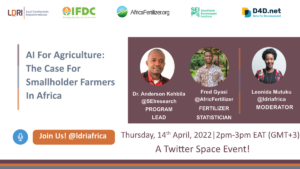![]()
Looking Back, Moving Forward: LDRI’s Reflections On The Regional Women In Data Summit 2025

From August 19th to 21st, 2025, we joined changemakers from across Africa and beyond in Naivasha, Kenya, for the Regional Women in Data Summit. It was a defining moment in an age shaped by data—a moment that asked a fundamental question: where are women in data?
The summit was not just another event. It was a call to action, bringing together policymakers, academics, development partners, and, most importantly, grassroots women whose lived realities too often go unseen and uncounted. Together, we reimagined what resilience looks like when women are not only counted, but counted for impact.
One message rang loud and clear throughout the conversations: when women are missing in data, they are missing in policy, and when they are missing in policy, they are missing in planning and development outcomes. Across the thematic tracks; food systems, health, public service delivery, and trade & economic empowerment—the truth was evident: Women are the backbone of these systems, yet their realities rarely shape the decisions that govern them. When these systems falter, women face the greatest impact—skipping meals to feed their families, walking long distances for healthcare, carrying the weight of unpaid care, or struggling to access financing for their businesses. They bear an unequal share of systemic shocks, despite being the ones who keep these very systems running. Speakers challenged us to move beyond gender-disaggregated data to gender-transformative data—data that does not just describe women’s circumstances but shifts power by giving them visibility, dignity, and agency.
For us at LDRI, the summit was both a moment of reflection and contribution. We hosted a side event on “Improving Capacity in Government Service Delivery” where we introduced our BRIDGE Local tool, a data capacity assessment framework designed to help decision-makers understand their government’s data capacity while making a case for investments in data for gender equality. Together with county officials, grassroots champions, and national representatives, we explored how to strengthen the production, dissemination, and use of gender data through domestic resourcing and capacity building. The voices in the room were united in reminding us that women are the primary users of public services—and when their perspectives are missing, systems will continue to fail them.
So, how do we accelerate resilience through better data? The summit gave us powerful insights but we shall summarize them in three guideposts:
- Representation: ensuring the lived realities of women, girls, and marginalized communities are not just collected but centered in data design.
- Resourcing: investing deliberately in every part of the data value chain, from collection to use.
- Readjusting: embracing new data sources and approaches that close gaps and make systems more responsive to real needs.
Looking ahead, LDRI is committed to turning these insights into action. We will continue strengthening county data ecosystems, championing gender-responsive statistics frameworks, and investing in local capacity so that data becomes more than a planning tool—it becomes a tool for justice.
The Regional Women in Data Summit reminded us, in the words of Amb. Philip Thigo, that “resilience is not accidental—it must be deliberate.”. As we look toward 2026, we invite you to walk this journey with us: to place women and girls at the center of data value chains, to invest in gender-data , and to readjust systems so that policies are not only well-designed but also deliver justice, dignity, and visibility for all.
Key Resources From The Summit
The Regional Women in Data Summit was not just about dialogue but also about equipping participants with practical tools and opportunities to advance gender data. Here are some highlights to explore:
Opportunity
Elevate Program (ICAIRE): A global skilling initiative empowering women in AI with a focus on ethics and inclusion. Cohort two registration is open — Apply here
Reads
Wageuzi Knowledge Product By Youth Alive
KNBS Quality Assurance Framework For Citizen Generated Data
UN Women Gender Data Outlook 2025: Regional Assessment of Gender Data Capacity and Use in Africa
Data2x: Valuing Women’s Time: A Practical Advocacy Toolkit for Data-Driven Policy Change




